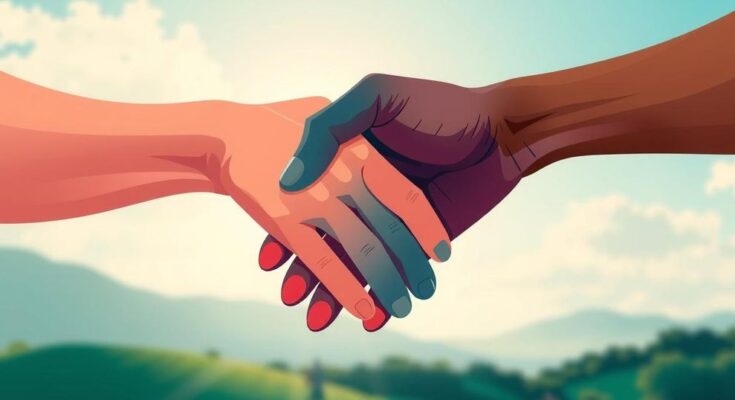On January 22, 2025, South Sudan’s government imposed a 30-day social media ban following a massacre. This action, criticized as a severe infringement on civil liberties, stifles public discourse and violates constitutional rights to freedom of expression. The directive raises concerns about the government’s commitment to human rights and democratic principles. Citizens need access to social media for justice and open communication during crises.
On January 22, 2025, South Sudan’s National Communication Authorities ordered a complete and indefinite shutdown of social media for at least 30 days. This controversial directive was enacted following the tragic massacre of South Sudanese nationals in Wad Madani, Sudan. The government views this measure as necessary for national mourning and security, though it raises significant concerns about civil liberties and the rights of citizens to express themselves.
The social media shutdown not only halts essential communication but also stifles public discourse at a time when open dialogue is vital. By restricting access, the government undermines citizens’ constitutional rights to freedom of speech, freedom of the press, and the right to information. Instead of fostering communication regarding the tragedy, this approach effectively marginalized essential discussions about governance and accountability in South Sudan.
This decision reflects a troubling departure from democratic values, primarily transparency and participation, which are crucial for a thriving society. Without access to social media, citizens remain uninformed about local and global events, raising concerns about the government’s true commitment to human rights and participatory politics. The response to the Wad Madani massacre indicates a potential regression in upholding civil liberties.
Citizens have relied on social media not only to express their grief but also to seek justice and hold accountable those responsible for violence. The government’s action curtails these vital channels, impacting civil society, human rights defenders, and the media’s ability to report abuses and advocate for change.
Under South Sudan’s Transitional Constitution, Article 24 guarantees the right to freedom of expression. Blocking social media blatantly contradicts this provision. Moreover, as a signatory to international treaties like the ICCPR and ACHPR, South Sudan is obligated to uphold these rights, which encompass freedom of expression through various mediums.
Despite the pain stemming from the massacre, the measure to block social media is not only excessive but damaging. This strategy fails to address the incidents’ core issues, instead increasing public frustration and distrust towards the government, counteracting its purpose.
A more effective response would involve allowing public discourse during this crisis. The government should prioritize transparency by updating citizens on the investigation into the massacre and reinforcing its commitment to justice rather than suppressing communication, which only breeds secrecy and misinformation.
I strongly urge the government to reverse this blanket social media shutdown. Citizens must retain the freedom to communicate, engage in the discourse, and demand accountability without fear. Ensuring access to social media is essential for the government to maintain credibility and engage meaningfully with its citizenry.
The events in Wad Madani should spur necessary action and accountability instead of restrictions on communication. As South Sudan moves towards healing, the values of justice, transparency, and respect for human rights must take precedence. Silencing voices is counterproductive; the government must restore social media access and foster an environment of open dialogue and accountability.
The recent directive by the South Sudanese government to shut down social media for 30 days has raised alarms about civil liberties and human rights in the country. Enacted following a brutal massacre in Sudan, this measure is framed as a means to address national grief and prevent violence. Still, it highlights a concerning trend toward suppressing expression during a time when open communication and justice are paramount.
The South Sudanese government’s decision to block social media in the wake of national tragedy severely undermines civil liberties, stifles public discourse, and contradicts both national and international obligations regarding freedom of expression. It is imperative for the government to restore access to these platforms as a crucial step toward transparency and accountability in governance. Upholding democratic values and human rights is essential for fostering peace and stability in South Sudan.
Original Source: www.radiotamazuj.org




